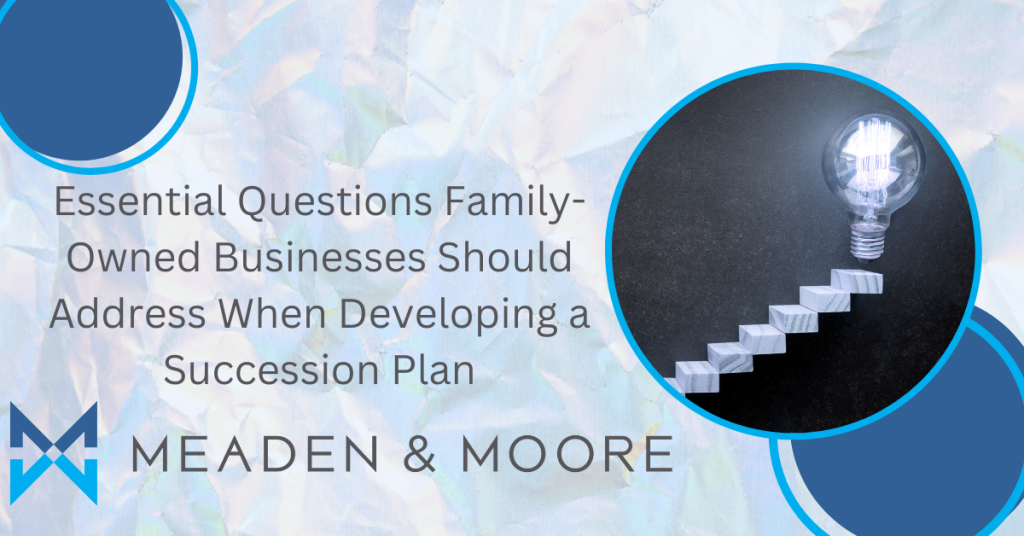Succession planning in family businesses is a critical process that ensures the stability and continuity of the business across generations. This process is characterized by developing, documenting, and communicating a comprehensive plan that aims for an orderly and successful transition. The journey towards this goal begins with the current generation of owners and operators who play a pivotal role in steering the process towards success.
Understanding Ownership Succession
Ownership succession is the cornerstone of succession planning. The current generation, whether they are the founders, successors of a previous generation, or third-party purchasers, face the complex challenge of determining the next ownership structure. This challenge is compounded by the lack of a one-size-fits-all solution, making it imperative to tailor the succession plan to the unique needs and goals of the business.
Key Questions for Clarifying Ownership Succession Goals
To navigate this challenge, it is essential to ask the right questions. These questions should aim to clarify expectations, identify potential successors, and set the parameters for the next generation of ownership. Some pivotal questions include:
- Who qualifies for ownership in the next generation?
- Should ownership be limited to family members, or include key employees?
- Is active employment in the business a prerequisite for family share ownership?
- How should the business approach equality among family employees in terms of share ownership?
- What mechanisms can be put in place to ensure fair treatment without necessarily granting share ownership?
- How will the business address changes in a family member's employment status concerning their ownership?
- Should ownership be considered a birthright, and if so, how should contributions to the business be evaluated?
- How are ownership and management interrelated, especially considering the business's size and complexity?
Additional considerations:
- The role and structure of a Shareholder’s Agreement in managing share transfer restrictions.
- Approaches for addressing potential contingencies such as death, disability, divorce, and other significant life events.
- The rights and challenges associated with minority shareholders.
- The potential benefits of an independent board of directors, advisors, or a family council.
- The influence of share ownership and business involvement on family dynamics.
- The advisability of engaging professional counselors to navigate complex questions.
Addressing these questions and considerations thoughtfully and thoroughly can help balance the business's interests with family harmony, laying a strong foundation for the next phase of succession planning.
Management Succession: A Critical Consideration
Following the determination of ownership succession strategies, the focus shifts to management succession. This aspect involves examining the current owners' attitudes towards transitioning managerial roles and responsibilities to the next generation. Ensuring a smooth transition in management is as crucial as ownership succession, requiring a thoughtful approach to identifying and preparing future leaders.
Next Steps in Succession Planning
As the succession planning process unfolds, it's essential to continually engage in dialogue, reflect on the evolving goals and needs of the business, and adjust the plan accordingly. The journey towards a successful transition is complex, involving a careful consideration of ownership and management succession among other factors.
The successful transfer of a family business to the next generation is a multifaceted challenge that begins with a clear understanding and strategic planning by the current generation of owners. By addressing the critical questions outlined and adopting a proactive and thoughtful approach, family businesses can navigate the complexities of succession planning, ensuring their legacy continues for generations to come.
Thank you to our friends at Meaden & Moore for providing this valuable information.
If you are interested in being featured on our Family Business Insights or have any questions please contact lflint@familybusinesscenter.com


